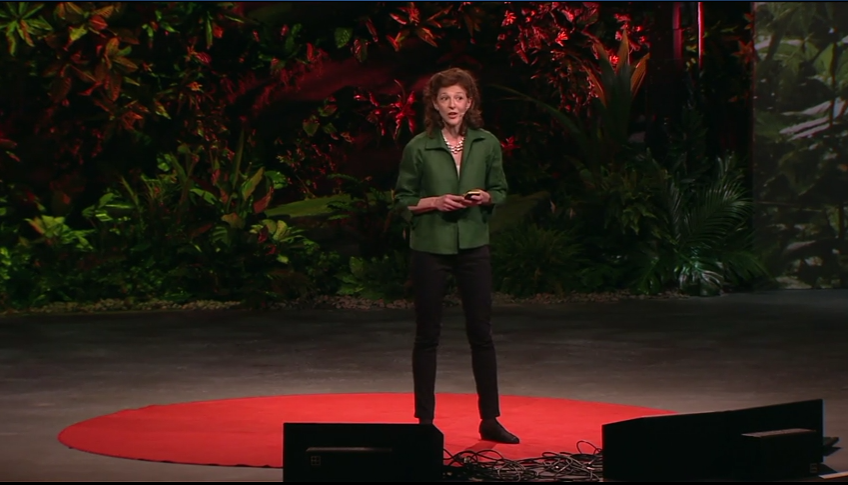So before I get started, what I'm going to do is I'm going to clarify my goal for you, which is not to teach a game of Gotcha.
切入主題之前,我先澄清一下,我演講的目的不是叫你們玩測(cè)謊游戲。
Liespotters aren't those nitpicky kids, those kids in the back of the room that are shouting, "Gotcha! Gotcha! Your eyebrow twitched. You flared your nostril. I watch that TV show 'Lie To Me.' I know you're lying."
測(cè)謊者并不是專門挑刺的孩子。那些孩子站在屋子后方大喊:“發(fā)現(xiàn)了!你的眉毛動(dòng)了。你的鼻孔動(dòng)了。我看電視劇“別對(duì)我撒謊”,我知道你在說謊。”
No, liespotters are armed with scientific knowledge of how to spot deception.
不,測(cè)謊者以識(shí)破謊言的科學(xué)知識(shí)來(lái)武裝自己。
They use it to get to the truth, and they do what mature leaders do everyday;
找出真相,他們像成熟的領(lǐng)導(dǎo)人那樣工作;
they have difficult conversations with difficult people, sometimes during very difficult times.
與難以打交道的人進(jìn)行艱難的對(duì)話,有時(shí)候還碰上世態(tài)不濟(jì)的時(shí)候。
And they start up that path by accepting a core proposition, and that proposition is the following: Lying is a cooperative act.
他們踏上了這條道路,懷著一項(xiàng)核心要點(diǎn),那就是:說謊是一項(xiàng)協(xié)作行動(dòng)。

Think about it, a lie has no power whatsoever by its mere utterance. Its power emerges when someone else agrees to believe the lie.
謊言本身沒有絲毫力量,而當(dāng)人將謊言信以為真,謊言的力量就產(chǎn)生了。
So I know it may sound like tough love, but look, if at some point you got lied to, it's because you agreed to get lied to.
忠言逆耳,但是,如果你被騙了那只能怪你相信了謊言。
Truth number one about lying: Lying's a cooperative act. Now not all lies are harmful.
關(guān)于說謊的第一條事實(shí):說謊是一項(xiàng)協(xié)作行動(dòng)。并不是所有謊話都有害。
Sometimes we're willing participants in deception for the sake of social dignity, maybe to keep a secret that should be kept secret, secret.
有時(shí),為了保住社會(huì)尊嚴(yán)我們?cè)敢庹f謊,有些秘密還是不要道破為好。
We say, "Nice song." "Honey, you don't look fat in that, no." Or we say, favorite of the digiratti, "You know, I just fished that email out of my Spam folder. So sorry."
我們說:“這首歌真好聽。”“親愛的,你穿這件不顯胖,一點(diǎn)也不。”我們還說“我才從垃圾郵件里看到那封郵件。真不好意思。”












